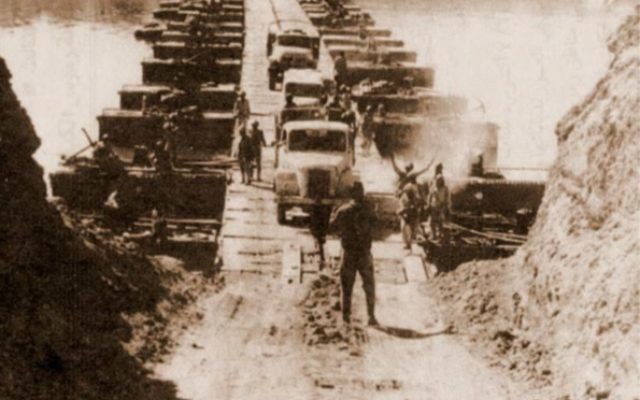43 Years After Yom Kippur War
By the Center for Israel Education
The Yom Kippur War was 43 years ago this month. What follows is the text of the U.S. intelligence estimate at the start of the war on Oct. 6, 1973. Records of the war as seen from Washington are found in “Foreign Relations of the United States, 1969-1976,” Volume XXV, Pages 283 to 1202.
Arab-Israeli Hostilities and Their Implications
Heavy fighting is almost certain to be short in duration — no more than a week. Neither side is logistically prepared for lengthy hostilities. The Israelis have the strength to blunt the Syrian offensive capability within a few days and, as quickly, to push the Egyptians back across the canal. Fighting on a lesser scale, say an artillery duel across the canal, however, could be more prolonged.
The hostilities pose serious threat to American interests. All Arabs, even those most well-disposed to the U.S., will press Washington to be at least even-handed, if not to join in sanctions against Israel. The more radical states — Libya, Syria, and Iraq in particular — will be strident in attacking the U.S. They will not limit themselves to oratory and maneuvers in the United Nations but will also foster moves against U.S. personnel and property in their own countries and elsewhere. Even moderates like Kings Husayn and Faysal will be under increasing pressure to distance themselves from the U.S.
Some interruption of oil supply to the West is likely, whether through Arab government action or through sabotage of oil facilities. Libya is almost certain to be the first to retaliate against Western oil interests. Particularly if the fighting does not end immediately, Saudi Arabia and the Gulf states are likely to limit oil production and may join in a general oil embargo. Though this would most hurt Western Europe and Japan in the first instance, it would also aggravate the present supply problems in the U.S. The Arabs would hope that the West Europeans and Japan would press the U.S. to bring influence to bear on Israel.
The Soviets will have to give political support to the Arab side, but they are following a cautious policy and would probably be willing to concert with the U.S. in dampening tensions.
Read more transcripts from the CIE archives at israeled.org/wp-content/uploads/2012/05/FRUS-1969-1976-1973-war.pdf.
Israel’s ‘Angel’
For another glimpse into this decisive part of Israel’s history, you can hear one of the foremost authorities on the Yom Kippur War, Uri Bar-Joseph, when he discusses “The Angel: The Egyptian Who Saved Israel” at the 25th annual Book Festival of the Marcus Jewish Community Center at 7:30 p.m. Monday, Nov. 7.
“The Angel” is an account of a senior Egyptian official-turned-spy for Israel who, by alerting the Mossad in advance of the joint Egyptian-Syrian attack on Yom Kippur, saved Israel from a devastating defeat.
Tickets are $13 for JCC members and $18 for others. Visit atlantajcc.org/bookfestival for tickets and more information.





comments